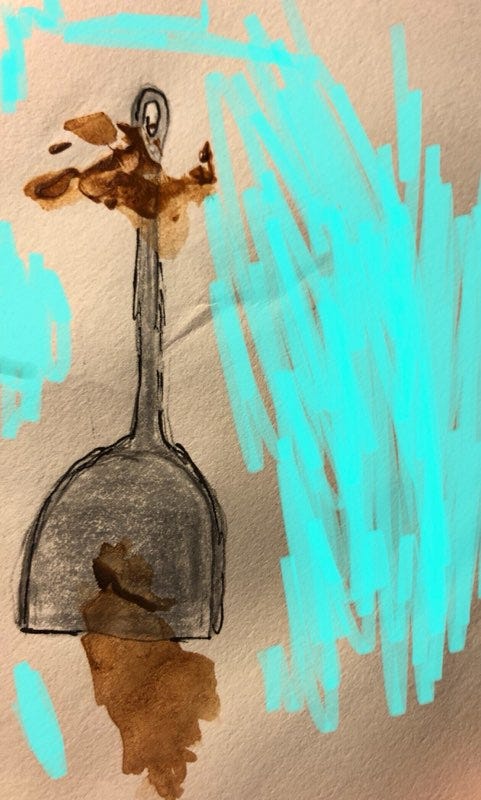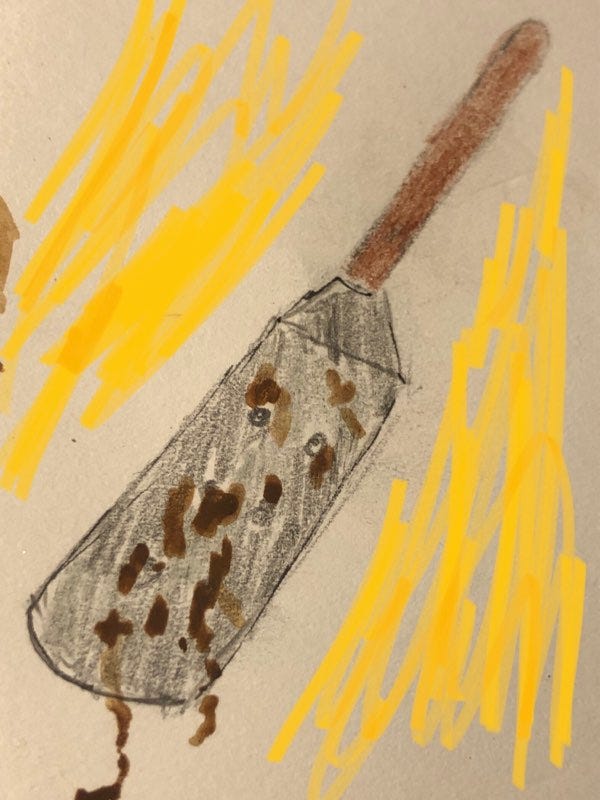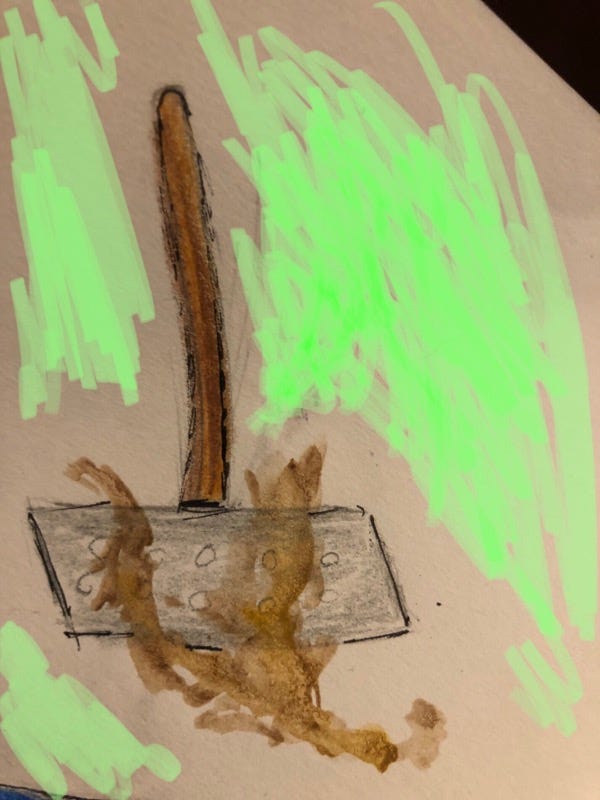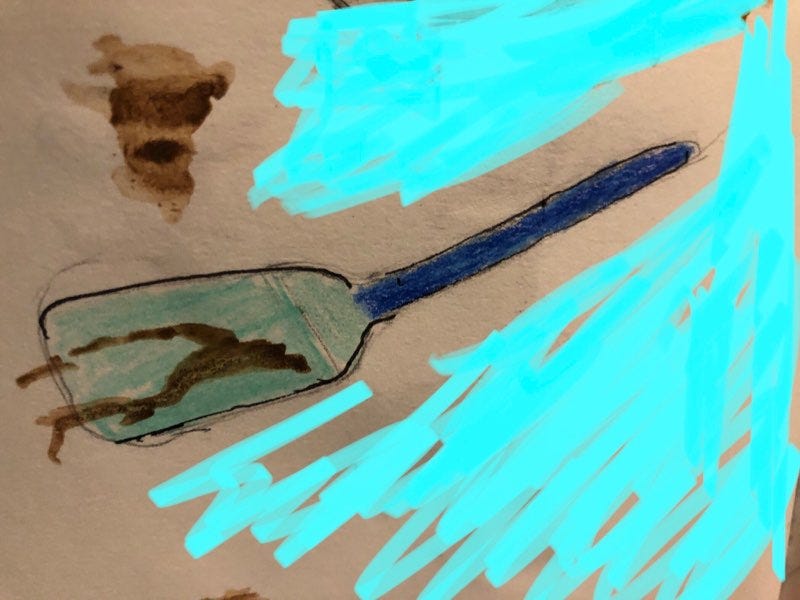In the 30 years that I have been cooking, I have developed a number of attitudes about food, cooking, and how they relate to both us as individuals and humanity. These truths were not found in any book or told to me by anyone. They have been formed through years of cooking and feeding people. For the most part, I have kept these truths to myself. I have never officially listed them. That is until no now. So I present to you!
Chef Steve’s Undeniable Truths of Food and Cooking - Part 1
Truth #1: Everybody On The Planet Loves Great Tasting Food
Every person no matter how rich or poor or where they are located on the face of on the planet is striving to enjoy the best tasting food that they can possibly afford. On the contrary, nobody enjoys eating poorly prepared food. - I have never met a person that craves food that is burnt, under cooked, poorly seasoned, or lackadaisically prepared. From the beginning of time, the whole human race is inherently wired with a love of great tasting food and a disdain for poor tasting food.
Truth #2. Every Person Has A Very Specific Food Bias
While everyone on the face of the planet desires and great tasting food and every person has a disdain for poor tasting food, each person also has within them a definite food bias. A person’s food bias consists of foods that they love, foods that they hate, opinions about the ideal and acceptable ways that foods should be prepared, and on and on and on. Part of a person’s food bias is learned from their parents, family members, holidays, and celebrations that are practiced within his or her culture. On the other hand, a person’s food biases are just naturally hardwired and ingrained within them. In my opinion, a person’s food bias and attitudes can sometimes be stronger and more intense than their political or religious beliefs. Some people’s food biases produce extremely picky eaters, while other people with more tolerant food biases are much more receptive to trying new and different foods. So while everyone loves great food and hates bad food each person has their own personal tastes and preferences on what great and terrible food really is.
Truth #3: I Have No Idea what The Word “Gourmet” Really Means
Now as glamorous and sexy as that definition sounds, I argue that the definition of the word gourmet is a very vague and nebulous. It just seems that in this day and age practically any person,food, or drink, or cooking appliance somehow gets the word “gourmet” attached to it. For example, there are gourmet kitchens, gourmet chefs, gourmet gourmet burgers, gourmet restaurants, gourmet cookbooks, 30 minute gourmets, gourmet sauces, gourmet donuts, gourmet picnics, gourmet steaks, gourmet barbecues, gourmet chicken wings, gourmet muffins, gourmet mixers, gourmet salt, weekend gourmets, gourmet appliances, and my all time favorite; gourmet cat food (because cats have extremely articulated palates). I recommend that you cross the word gourmet out of your dictionary, and delete it from your vocabulary.
Truth #4: The Idea Of Being A Foodie Is A Myth
I really struggle with the idea of what a foodie is. Does having an adventurous palate make you a foodie? Do you qualify as a foodie if you drive several miles to eat at a certain restaurant or to have a particular food experience? Like I said in Rule #1, everyone who is alive on the planet is looking for great food. In some places, people are hoping to just get enough food so that they will not starve to death. In light of starvation, being a food seems really self centered and and ethically corrupt. That by means that we cannot enjoy the food that we eat. I often get the impression that the pursuit of being a foodie is one of pretentiousness. So if you think you are a foodie, stop being one immediately and just be thankful for the food experiences that you get to enjoy.
Truth #5: Cooking Is Not Hard
In talking to some people about cooking, they will tell you about how cooking is some type of monumental, arduous task and how they bemoan the whole culinary process.
To be honest, listening people talk about how their dislike of cooking is difficult for me. I don’t mean to burst anyone’s bubble about this, but there is absolutely nothing hard about turning on the stove and setting the dial to 350 degrees. It takes no special talent to peel carrots and potatoes. Finding all of the necessary spice to season your food are available to us. All of the recipes that you need to cook are in cookbooks and in your grandma’s recipe box. And for those who claim that they cannot boil water, please stop making lame excuses. Cooking is not hard.
Truth #6: Cooking Requires An Investment Of A Person’s Time
For example, grilled cheese sandwiches and tomato soup only require about 15 minutes, the whole process of turning on grilling some chicken on the grill requires about 30 minutes. Roasting the potatoes in an oven requires 60-90 minutes. According to a 2019 survey, 50% of Americans spend about 30-60 minutes every weeknight preparing their evening dinner. In other words, the meals in your home, just don’t magically appear on your dining table. Somewhere, somehow, someone has to exert the effort and expend the time to prepare each meal. The more complicated that the meal is, the more time and energy one will have to expend to prepare get that meal prepared and served.
Truth #7: Mistakes Made In The Kitchen Can Be Very Unforgiving
In many cases, one mistake made while cooking, whether it be over or under cooking the dish, or improperly measuring the required ingredients can spell out the words kitchen failure. Ruining a meal because of one’s lack of attention, mistake is a very humbling experience . While I consider this to be an important rule, don’t get too stressed out about it. Just remind yourself rule #3 - “Cooking is not hard”. You can still watch television, listen to a podcast, talk on the phone, as long as you are paying enough attention to successfully prepare the meal. And if you do ruin a meal, tell everyone to chill and order a pizza.
Truth #8: There Will Be Messes And Dirty Dishes
Messes and cooking are forever wedded. It is just a part of the culinary process. While some cooks are excellent managers of the spaces on their countertops and stoves, other cooks create the equivalent of an edible bio hazard zone by the time their meal is served. Even if a cook maintains the cleanest of spaces, there will be a certain amount of dirty dishes to clean. Messes and dirty dishes are just part the cooking process.
Truth #9: A Recipe Is A Lifelong Evolutionary Process
Originally I was going to say that a recipe is a guideline, but after thinking it for a while I came to the conclusion that recipes are much more than guidelines. For some people, a recipe will never be a guideline for they will stick to it no matter what. I like to think of a recipe as an open ended, continuous realm of culinary possibilities. I would argue that I do cook as I did thirty years ago, for as I learned more about the cooking process, my attitudes, techniques, palate, and my recipes changed. A really great example of this is how I make pineapple upside down cake. Thirty years ago, I would make the cake batter by simply following the directions on the back the box of yellow cake mix. When I had been cooking for a couple of years, I decided to use pineapple juice in the batter instead of water. The pineapple juice really improves the recipe. A few years later, I decided to add toasted coconut to my whipped cream. Then a few years after that, I decided to add rum to either the whipped cream. The next time that I am going to make pineapple upside down cake, I am going to see what happens if coconut milk is added. So as far as I am concerned, a recipe no matter how well developed it may be, is just a starting point of an evolutionary process that explores culinary possibilities.
Truth #10: Cooking Involves All Five Of Your Senses
When people think about cooking, they often think of it only involving their sense of taste and smell. While the the cook’s sense of taste and smell are absolutely crucial to the cooking process, many cooks, do not realize the importance of their senses of sight, hearing, and touch. When I make an omelet, I always start by heating the butter in the bottom of the pan. When the butter starts to foam, I know that the pan is well heated. Then I pour my beaten eggs into the omelet pan and I will hear the sound of the eggs coming into contact with the hot pan. So in the process of cooking an omelet, I really am using four of my five senses. So the next time that you are in the kitchen, be mindful that cooking often involves much more that just the senses of taste and smell.
In












"I like to think of a recipe as an open ended, continuous realm of culinary possibilities." That's so true - although it takes a comfort level to get there.
Loved these truths! You're right on. Read it while pondering how to patch together a solid meal on vacation, away from my kitchen and all its space/tools/supplies. I'm inspired!
Hi Steve!
Regarding our food biases:
I knew a person that had a heart transplant and immediately developed a craving for big macs- something they had never eaten more than once or twice over their entire life. They eventually came to learn that the heart donor's favorite food was a big mac. (hope the heart was still ok!)
SO, it seems our food biases become ingrained in the very DNA of our physical body itself.